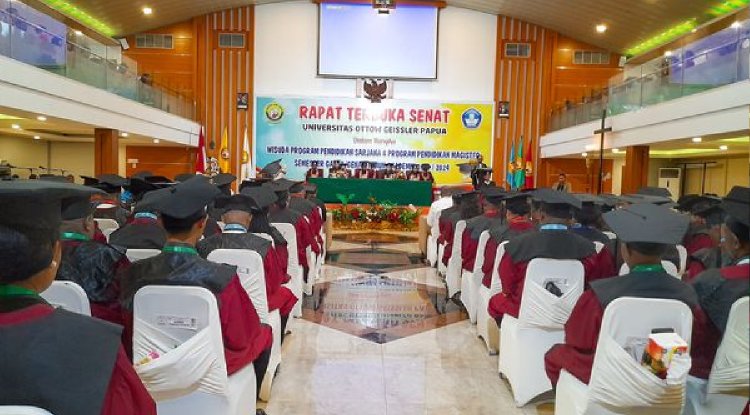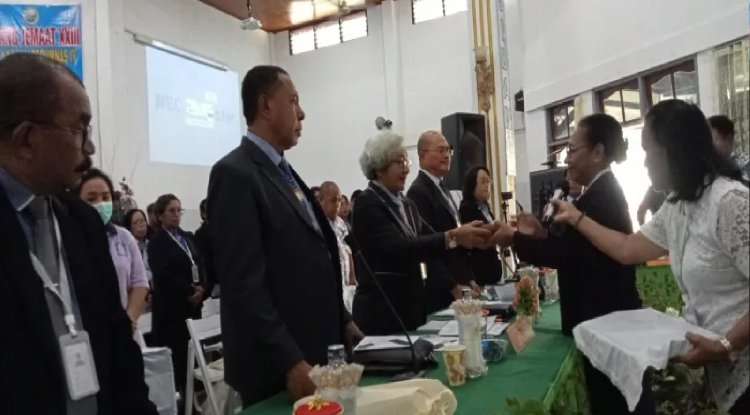SHOULD CHURCH TEACHINGS INFLUENCE HOW WE READ THE BIBLE?

Stephen O. Pressley, January 5, 2024, / Picture: Artas / Getty
The opinion of a Protestant against the encouragement of a Catholic theologian to read the Holy Scriptures is considered a "suggestion rooted in the ecclesiastical tradition."
“Now this is not the end. That's not even the beginning of the end. But it was, perhaps, the end of the beginning,” said Winston Churchill on November 10, 1942, after the British victory in Egypt during World War II.
When I opened R's latest book, R. Reno, Catholic theologian and editor of First Things, the End of Interpretation: Reclaiming the Priority of Ecclesiastical Exegesis, I thought of those words. Just as Churchill saw the victory as an important turning point in the war in North Africa, Reno saw a new synthesis between Scripture and doctrine as a way to get out of our current cultural crisis situation.
"How," asks Reno in the book, " do we align doctrine with Scripture?" On the surface, this may seem like a strange question to ask. Doctrine and Scripture are the most obvious allies, right? Are they not the two components that make up a harmonious Christian testimony as a whole? For most believers, there is clearly no real conflict between them. However, in seminar rooms, the topic is likely to cause heated debate.
Reno responded to the schism that gradually emerged during the 20th century among those who undertook serious study of the Bible and theology, a schism he considered dangerous and unnatural, by suggesting a new synthesis between Scripture and doctrine. Broadly speaking, the task of theology is to create an authoritative doctrine that distills Biblical teachings about God and man. The task of biblical interpretation is to understand the objective meaning of Scripture in its literary, historical, and canonical context.
The situation has a significant institutional aspect, according to Reno. Over the years, the traditional disciplines of biblical studies and theology have been separated by a variety of conflicting methods and assumptions in the halls of contemporary German universities. At this point, Reno thought we would sail back to the safe harbor of the church, where these boundaries were gone, and stopped any attempt to build bridges between them. Then, we may be able to pursue a socially redemptive type of spiritual development if we can re-read the Bible in a way that conforms to the teachings of the church.
Anyone familiar with Reno's recent publications, such as Sanctified Vision, Brazos Theological Commentary on the Bible: Genesis, Resurrecting the Idea of a Christian Society, and Return of the Strong Gods, can see how this book demonstrates a shift in his own thinking toward "priority ecclesiastical reading."
Reno began by reading the works of Karl Barth and other "post-liberal" theologians of the 20th century, which prompted him to see the truth of God as a symphony displaying the "synthetic genius" of the divine composer.
"Proper interpretation proves itself that way when our reading of Scripture is in accordance with what the church teaches," says a brief sentence describing Reno's basic approach in the End of Interpretation. Although the curriculum manager of an educational institution may reject Reno's request for synthesis, my opinion is that he is not trying to convince academics. On the contrary, he sought to awaken Christians who were already tired of the motionless debate about the interpretation of the Bible and were active in the service of the church.
Reno states, "This book presupposes that we must be very careful to honor the truth of our faith and the duty of reason, including its modern methods, to purify and deepen that truth." However, as Christians, we must seek this purification and deepening. We are drawn "closer to God" through the union of interpretation and theology, and we are challenged to have a closer relationship with the Christian theologians who have lived before us. "For the life and mission of the Church and for the future of the faith, it is essential to overcome the dualism between interpretation and theology,"
Reno said. In this book, the outline is as follows: the first two chapters affirm and explain how interpretation and doctrine "correspond" to each other. Chapters 3–4 talk about the work of the church, Father Origen, and the reformers. In addition, chapters 5-7 deal with cases relating to the readings of Genesis, John, and 1 Corinthians. Finally, the book concludes with some consideration of the lessons Reno learned during his time as editor of the Brazos Theological Commentary series.
Reno's motto fits in the first two chapters. In his opinion, interpretation should begin with the "presumption of conformity," which he illustrated as follows:
If the Bible teaches something that we consider to be an integral part of the gospel, then we assume that the teaching of the church should be essentially the same. Conversely, if the church teaches something as a saving truth, then we assume that the Bible also teaches it.
In short, the teachings of the church and the teachings of the Bible go hand in hand. Of course, the term "church" can have very different meanings, especially in the context of the Protestant-Catholic conflict, but Reno reminds us that "almost all Christians adhered to the presumption of conformity," even in a Reform tradition that prioritized Scripture over church customs.
Chapters 3–4 present Origen and Luther as examples of the "interpretative synthesis" that the church hoped would follow. It was clear that Origen was controversial; Reno did not defend him fully, but he showed how Origen read the Scriptures in a "Christ-signifying way." Of course, Origen strove to derive spiritual meaning from various biblical texts, but he focused only on their literal meaning. Luther, on the other hand, said that doctrine provides what Reno called the "horizon of truth," which helps to interpret with more focus and stability.
Reno discusses certain passages from Genesis, John, and 1 Corinthians in chapters 5-7. He also showed how to read the Scriptures in a doctrinally appropriate way. For example, in his talk on Genesis, he points out that the doctrine of creation ex nihilo, or out of nothing, is not something that theologians have "imposed" on Scripture. He emphasized this several times. In fact, doctrine arose from time to time through careful negotiation, or "pressure," between Scripture and doctrine. This doctrine is actually very important to improve our understanding of the early chapters of Genesis.
The same goes for Jesus' request for unity of faith in the Gospel of John and Paul's request for moral formation in 1 Corinthians, which is a reading that encourages people to do what Reno calls "selfless service." Compared to these passages, the doctrine provides greater clarity and gives people the confidence to live it. Reno synthesizes Scripture and doctrine in a way that aims to shape God's people and prepare them for cultural engagement through his example, which includes the entire canon.
The book ends with some conversations about Brazos' controversial series of theological commentaries, for which Reno was in charge as general editor. The storyline behind this series of commentaries offers an interesting case study of the discussion of theological interpretation. Reno admitted that the authors of the series did not know which method of interpretation to use, but he was sure that Nicene Christianity would play an important role. This series was a real attempt to change Scripture and doctrine, although some volumes were more successful than others.
Moreover, the point is that these publications do not promote platonic idealism; rather, they serve as an attempt to unite two things that have been divided. Although the books may have received mixed reviews, it is at least a profound effort, and, as Reno says, we can hope that better theologians were formed in the "casting of interpretations."
Reviving the voice of the church The different chapters at the end of the interpretation were written at different points during Reno's career; transitions between specific chapters are difficult to understand, but a meticulous person can distinguish the internal logic of an entire chapter. Although I strongly support Reno's efforts to restore ecclesiastical interpretation, I recognize the difficulties that still exist on the other side. How generations of seminarians and academics trained in critical methods and assumptions can learn to appreciate the synthesis of Scripture and theology is still my question.
The work of atonement seems to have to begin within the church at some level. Undoubtedly, the words used in the church can have different meanings according to different denominations and church traditions. However, such differences can probably be eliminated for a long time. Meanwhile, consideration of restoring a church-centered way of reading Scripture offers something hopeful as God's people face significant cultural change.
Ultimately, Reno's book offers an experiential reflection from a Christian intellectual who has thought deeply about the history of Biblical interpretation and the need for "good" interpretation in and for the church. Reno has tried diligently in recent years to revive the church's voice in cultural engagement, and it's clear that its clarion call for "ecclesiastical interpretation" fits that agenda.
I sympathize with his thesis, and while his work may not end the scholarly approach to interpreting Scripture, I hope it marks a Churchillian event in which the church can improve its scripture reading habits and become courageous enough to accept it. People like Irenaeus, Origen, Augustine, and the reformers. I wish we were too.
Stephen O. Presley is professor of church history at Southern Baptist Theological Seminary and senior fellow for religion and public life at the Center for Religion, Culture, and Democracy, an initiative of the First Liberty Institute. Cultural sanctification: engaging the world like the early church was the next book he would write.
News Sources: :
What's Your Reaction?





















